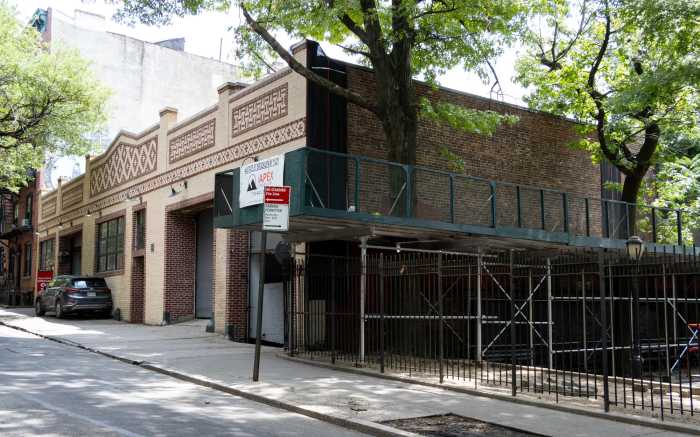They want their study, and they want it now.
The top brass touting the soon-to-be-reactivated shipping hub at the long-awaited South Brooklyn Marine Terminal in Sunset Park must immediately conduct an study to determine how it will impact local truck traffic in the already truck-heavy neighborhood, demanded officials on the neighborhood’s Community Board 7.
“We have a serious issue with truck traffic — the truck route on 20th Street has been on our docket for over a decade now,” said board chairman Cesar Zuniga. “We have to have these conversations about the infrastructure.”
Earlier this month, local elected officials cheered the projected future use of the terminal — which was built in the 1960s and used as a container terminal through the 1980s — as an economic stimulant that will create more than 250 jobs and reduce 11,000 truck trips annually after it likely becomes active again this year, according to the city Economic Development Corporation.
But the district manager of the community board said that the estimated 11,000 fewer truck trips applies to the entire region of New York and New Jersey — not Sunset Park, which merits its own study, especially given locals’ well-documented frustration with the truck traffic that snakes through the nabe to reach its factories and waterfront, and even to reach the highway.
“We talked about reducing 11,000 truck trips regionally, but I would like to know what the numbers are locally,” said Jeremy Laufer. “We need to see what the study shows.”
Laufer said the terminal could very well reduce truck traffic locally by relying more on the freight trains and barges rather than trucks to transport goods through the neighborhood and beyond but that it will also depend on the types of businesses using the terminal.
“We need to see what the mix of businesses and sub-tenants are,” Laufer said.
The president of Red Hook Container Terminal — which will work with Industry City to operate it — said the figure was, indeed, reflective of the businesses that will use the terminal, but he declined to specify whether it referred to truck traffic reduction locally or regionally.
“The estimate of 11,000 reduction in truck moves is based on the estimated business we are targeting at South Brooklyn Marine Terminal,” said Mike Stamatis.
The law does not require an impact study on truck traffic for the terminal, since its reactivation is under a lease signing — through 2054 — rather than a land-use change, according to a spokesman for the Economic Development Corporation. But he added that the agency is working with the Red Hook Container Terminal to develop measures to “limit local impact,” which it plans to share with locals soon.
“We will be sharing early iterations of those measures with the community and gathering feedback to ensure that concerns are addressed and the voice of the community is reflected in the reactivation of the terminal,” the spokesman said.
But Zuniga insisted that the neighborhood deserves to know specifically how the terminal will affect local traffic— and even if the study is not required by law.
“I would hope that even if it’s not required, they would do it to understand how this is going to tax our infrastructure a lot more than it is already,” Zuniga said.


























